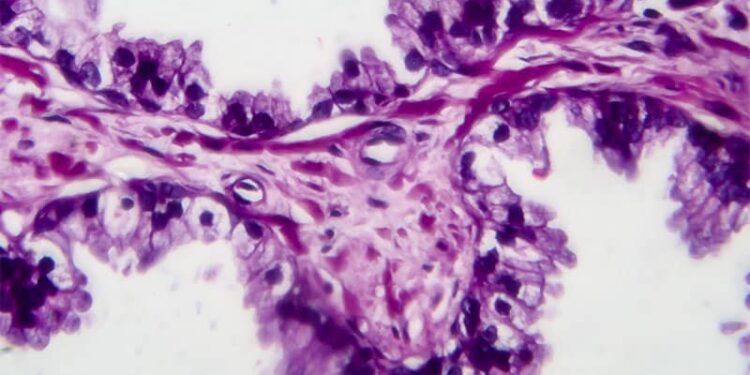[ad_1]
TOPLINE:
Patients who experienced acute genitourinary and gastrointestinal toxicities following prostate cancer radiotherapy were more likely to have late toxicities and to experience declines in urinary and bowel quality of life (QoL), according to a recent meta-analysis.
METHODOLOGY:
- The relationship between acute and late toxicities in patients receiving prostate radiotherapy for prostate cancer has not been well studied. Understanding this association could inform strategies to mitigate long-term adverse effects and improve patient outcomes.
- Researchers conducted a meta-analysis of six randomized trials, which included a total of 6593 patients with prostate cancer (median age, 69 years) who received either conventionally fractionated radiotherapy (n = 4248) or moderately hypofractionated radiotherapy (n = 2345).
- The study analyzed the association between acute and late grade ≥ 2 genitourinary and gastrointestinal toxicities. Acute toxicities occurred within 3 months of treatment completion, while late toxicities occurred after 3 months. The median follow-up duration was 72 months.
- Researchers also assessed patient-reported QoL outcomes using the Expanded Prostate Cancer Index Composite questionnaire to identify relevant declines in QoL after 3 months posttreatment, defined as at least twice the minimal clinically important difference (MCID).
TAKEAWAY:
- Patients who experienced acute grade ≥ 2 genitourinary toxicities were significantly more likely to experience late grade ≥ 2 genitourinary toxicities (odds ratio [OR], 2.20; P
- Similarly, patients who had acute grade ≥ 2 gastrointestinal toxicities were significantly more likely to experience late grade ≥ 2 gastrointestinal toxicities (OR, 2.53; P
- Early grade ≥ 2 genitourinary toxicity was linked to a significant decline of at least twice the MCID in urinary QoL (OR, 1.41; P = .0002). Among patients who experienced the decrease, 21.1% recovered to baseline after a median of 30 months, 13.8% recovered to the MCID after a median of 12 months, and 65.1% did not recover.
- Early grade ≥ 2 gastrointestinal toxicity was associated with a significant decline of at least twice the MCID in bowel QoL (OR, 1.52; P
IN PRACTICE:
“Acute toxicity following prostate radiotherapy was statistically significantly associated with late toxicity and late decrement in patient-reported QoL metrics following conventionally fractionated or moderately hypofractionated prostate radiotherapy,” the authors wrote. “Further prospective studies are needed to evaluate whether strategies that mitigate the risk of acute toxicity lead to reduced rates of late toxicity and whether early interventions to treat acute toxicity impact rates of late toxicity,” they added.
SOURCE:
This study, led by John Nikitas, MD, the University of California, Los Angeles, was published online in The Lancet Oncology.
LIMITATIONS:
This post hoc analysis of six randomized controlled trials may have been influenced by unmeasured confounders, which could have affected the study findings. Data on patients’ medical comorbidities were insufficient, so researchers couldn’t adjust for them in the analysis. Additionally, toxicity data relied on physician-reported assessments, which may not have captured all events.
DISCLOSURES:
This study received support from the National Institutes of Health and US Department of Defense. Several authors reported receiving grants and research funding, as well as having various ties with multiple sources. Additional disclosures are noted in the original article.
This article was created using several editorial tools, including AI, as part of the process. Human editors reviewed this content before publication.
[ad_2]
Source link : https://www.medscape.com/viewarticle/can-early-rt-side-effects-predict-later-complications-2025a100042j?src=rss
Author :
Publish date : 2025-02-17 11:31:27
Copyright for syndicated content belongs to the linked Source.














